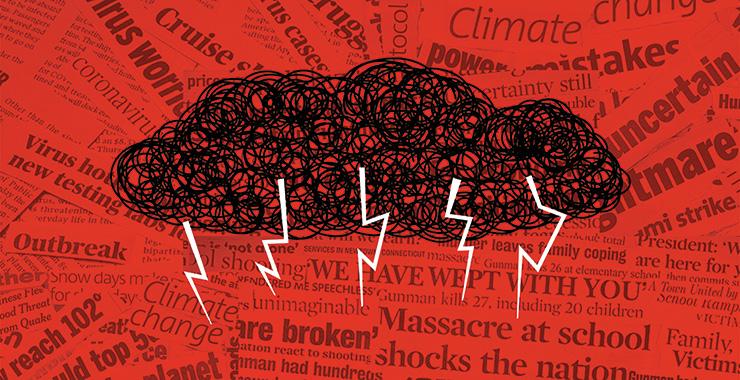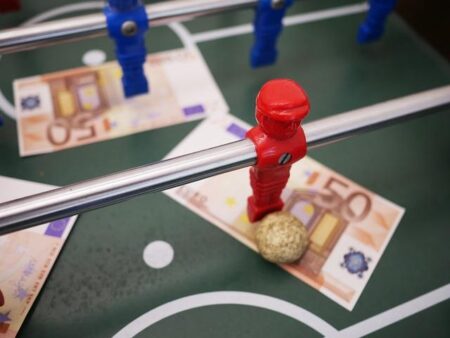A growing body of research highlighted by Psychology Today reveals that excessive media consumption is undermining athletes’ ability to concentrate and perform at their best. With the constant barrage of digital distractions-from social media notifications to streaming services-sports professionals are facing unprecedented challenges in maintaining mental focus. Experts warn that this media overload not only hampers training efficiency but may also affect competitive outcomes, raising concerns about the broader impact of our hyperconnected world on athletic performance.
The Impact of Media Overconsumption on Athlete Concentration
Excessive exposure to media platforms – including social media, news outlets, and streaming services – creates a cognitive overload that disrupts athletes’ ability to maintain sustained focus. The constant barrage of information fragments attention spans, increasing mental fatigue and reducing the brain’s capacity to process critical in-game cues. This phenomenon is especially pronounced during pre-competition periods when mental clarity is paramount. Studies indicate that athletes who spend more than two hours daily consuming media are prone to lapses in concentration, slower reaction times, and diminished decision-making skills on the field.
Key factors contributing to these impairments include:
- Information Overload: Constant notifications and updates split an athlete’s mental resources.
- Emotional Fluctuations: Negative news or social media conflicts elevate stress hormones, impairing focus.
- Sleep Disruption: Late-night media usage interferes with rest cycles critical to cognitive restoration.
| Media Consumption | Average Focus Duration | Performance Impact |
|---|---|---|
| Less than 1 hour/day | 45 minutes | Minimal |
| 1-2 hours/day | 30 minutes | Moderate |
| Over 2 hours/day | 15 minutes | Significant |
How Distractions from Media Hinder Physical and Mental Performance
Athletes and fitness enthusiasts increasingly report difficulty maintaining concentration during training and competition, a trend linked to the omnipresence of digital media distractions. Social media notifications, streaming content, and constant news updates fragment attention, leading to delayed reaction times and decreased situational awareness. Neuroscientific studies have demonstrated that the brain’s prefrontal cortex, responsible for focus and decision-making, is particularly vulnerable to these interruptions. This cognitive disruption not only hampers physical execution but also weakens mental resilience, essential for peak sports performance.
Consider the following impacts media distractions impose on performance metrics:
- Reduced Reaction Speed: Delayed response by up to 15% during critical moments.
- Lowered Endurance: Mental fatigue accelerates physical exhaustion.
- Impaired Strategic Thinking: Difficulty adapting tactics mid-game due to fragmented focus.
| Performance Aspect | Effect of Media Distraction |
|---|---|
| Focus Duration | Decreases by 30% |
| Accuracy | Reduced by 12% |
| Reaction Time | Delayed by 200 ms |
Strategies for Minimizing Media Interference During Training and Competition
To shield athletes from overwhelming media distractions, teams and coaches are increasingly adopting structured communication protocols. These include designating specific times for media engagement, typically outside peak training hours, ensuring athletes maintain full concentration during workouts and competitions. Establishing media-free zones in training facilities and using noise-canceling technology further help preserve mental clarity. Importantly, educating athletes on managing their online presence encourages controlled social media interactions without compromising focus.
Implementing these strategies involves coordinated planning and respect for athletes’ mental space. Here’s a breakdown of effective methods used by top-performing teams:
- Scheduled Media Sessions: Set fixed times for interviews to prevent unexpected interruptions.
- Media Mindfulness Training: Help athletes develop skills to navigate attention-diverting stimuli.
- Team Media Representatives: Use dedicated spokespeople to filter media inquiries.
- Social Media Timeouts: Encourage periodic breaks from digital platforms during critical phases.
| Strategy | Primary Benefit | |
|---|---|---|
| Scheduled Media Sessions | Minimizes unplanned distractions | |
| Media Mindfulness Training | Enhances concentration and resilience | |
| Team Media Representatives | Protects athletes from media overload | |
| Strategy |
Primary Benefit |
|
| Scheduled Media Sessions | Minimizes unplanned distractions | |
| Media Mindfulness Training | Enhances concentration and resilience | |
| Team Media Representatives | Protects athletes from media overload | |
| Social Media Timeouts | Maintains focus during critical phases |
If you need any further assistance with formatting or content, feel free to ask!
Balancing Media Use to Enhance Focus and Optimize Sports Outcomes
Excessive consumption of media, especially through smartphones and social platforms, can significantly disrupt mental clarity and athletic focus. Athletes who immerse themselves in constant streams of notifications, videos, and social interactions often experience diminished concentration levels during training and competitions. This overstimulation fractures attention spans, making it difficult to maintain the sustained mental engagement that sports performance demands. By limiting media intake, athletes create mental space to fully engage with their physical environment and coaching cues, which translates into improved decision-making and reaction times on the field.
Strategies to balance media use effectively include:
- Setting scheduled “media-free” periods before and after practice
- Using apps that restrict unnecessary notifications during key focus times
- Prioritizing high-quality, sport-related content over passive scrolling
| Media Use Habit | Impact on Focus | Recommended Action |
|---|---|---|
| Watching highlights before game | Raises motivation but can overwhelm | Limit to 15 minutes max |
| Continuous social media scrolling | Leads to distraction and fatigue | Use app blockers during training |
| Listening to motivational podcasts | Enhances mental preparedness | Incorporate during warm-up only |
The Way Forward
As athletes strive for peak performance, the impact of excessive media consumption cannot be overlooked. Psychology Today’s insights highlight a growing concern: the pervasive presence of digital distractions is compromising focus and ultimately hindering athletic achievement. Moving forward, both competitors and coaches may need to rethink media habits to safeguard mental clarity and optimize performance on the field.





